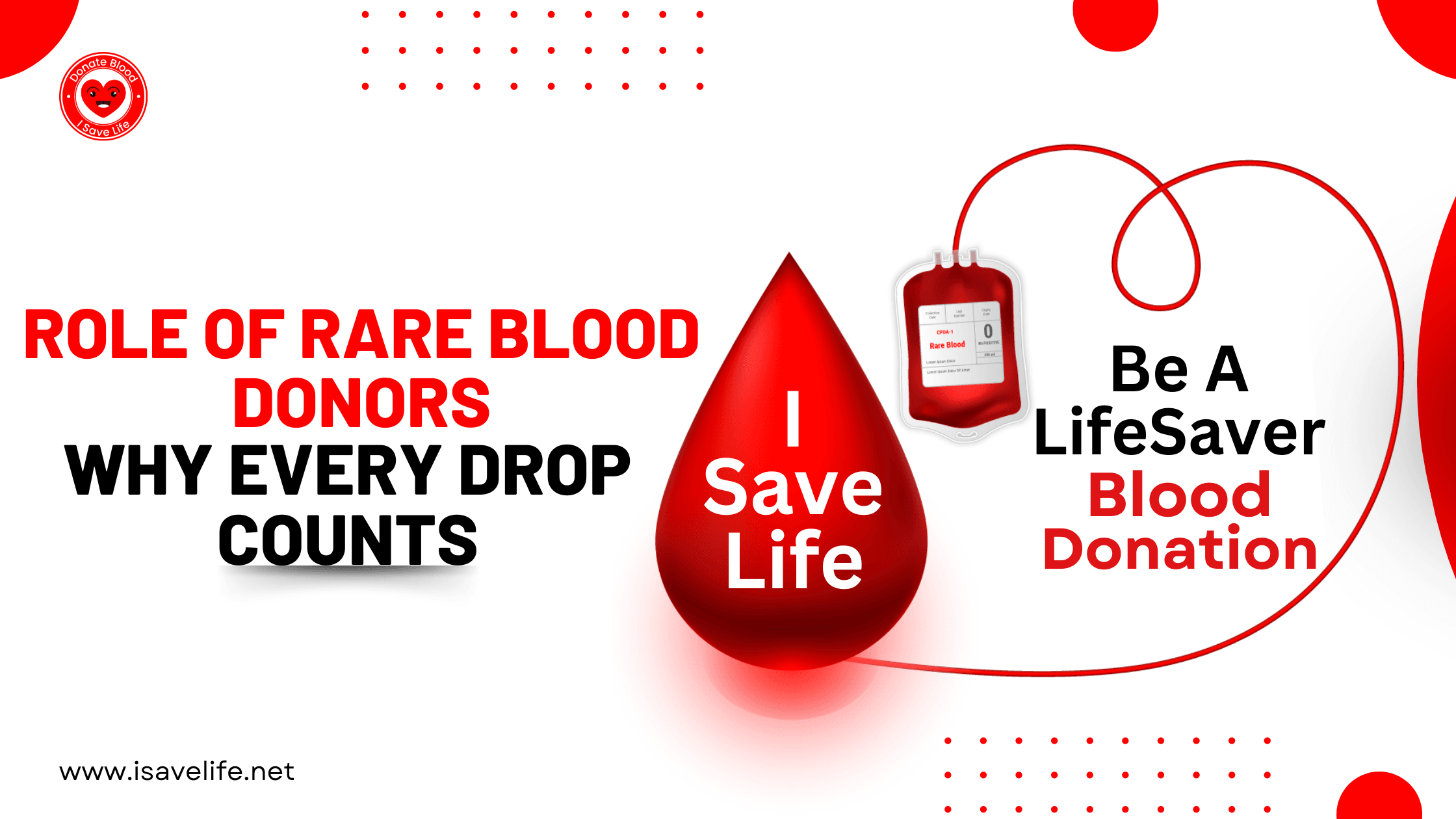
Role of Rare Blood Donors: Why Every Drop Counts
27-Sep-2024
Blood donation is a generous act that saves millions of lives every year. But did you know that some people have rare blood types, and for them, finding a match can be incredibly difficult? That’s where rare blood donors come in. These donors play a crucial role in ensuring that everyone, no matter their blood type, can receive the lifesaving blood they need.
Understanding Blood Types
Before we dive into why rare blood donors are so important, let’s take a quick look at blood types. Most people are familiar with the basic blood groups: A, B, AB, and O. These groups are classified based on the presence or absence of certain proteins, called antigens, on the surface of red blood cells. Along with the ABO system, there is also the Rh factor, which can be positive (+) or negative (-), further classifying blood types.
So, for example, you could have A+ or A-, B+ or B-, and so on. Most people belong to one of the common blood types, such as O+ or A+. However, there are also many rare blood types that only a small percentage of the population has.
What Is a Rare Blood Type?
A blood type is considered rare if fewer than 1 in 1,000 people have it. In some cases, rare blood types may be even harder to find, with fewer than 1 in a million people sharing the same type. This makes it extremely challenging to find matching blood for people with these rare types when they need a transfusion, especially in emergencies.
Rare blood types can be caused by genetic factors, and they often occur in specific ethnic or regional groups. For example, certain rare blood types are more common among people of African, Asian, or Hispanic descent.
Why Rare Blood Donors Are Essential
For most people, finding a blood donor is relatively straightforward. But for those with rare blood types, it can be a matter of life and death. Hospitals and blood banks may not always have a supply of rare blood on hand, and finding a match can take time.
This is why rare blood donors are so vital. Their donations are specifically stored for people who have rare blood types. In some cases, international blood banks may even have to search for donors across countries to find a match.
Rare blood donors are often on special call lists, meaning they may be contacted if a patient with their specific blood type urgently needs a transfusion. Without these donors, people with rare blood types could face serious delays in getting the blood they need, which can be dangerous in critical situations.
How You Can Help
Even if you don’t have a rare blood type, your donation still makes a big difference. Every donation helps keep blood supplies full and ready for those in need. Blood banks also test donations for blood type, so if you happen to have a rare type, they’ll know, and you could become part of a life-saving network.
If you do have a rare blood type, consider joining a registry of rare blood donors. Your donation could be the key to saving someone’s life, whether it’s a patient in your community or someone across the globe.
Conclusion
Blood donation is always important, but for people with rare blood types, it’s truly a lifeline. Rare blood donors play a critical role in ensuring that everyone has access to the blood they need, no matter how uncommon their blood type may be. Every drop of blood counts, and every donor has the power to save lives.
By becoming a blood donor, you can make a real difference, whether your blood type is common or rare. The next time you donate, remember – your contribution could be the one that makes all the difference for someone in need.
------------------------------------------------- Every Drop Saves a Life ------------------------------------------------